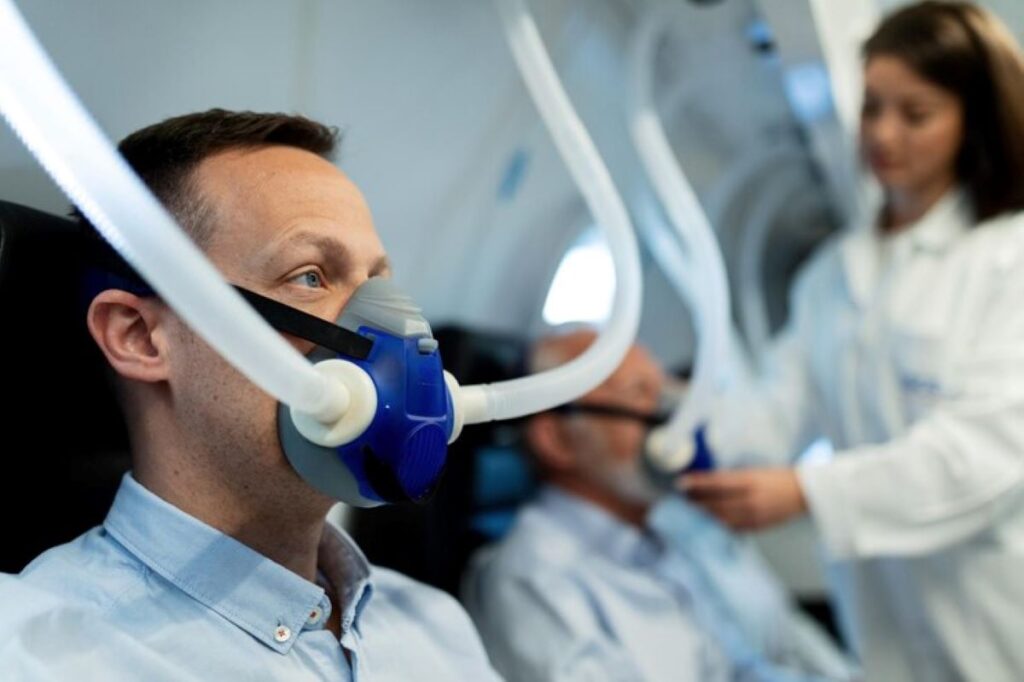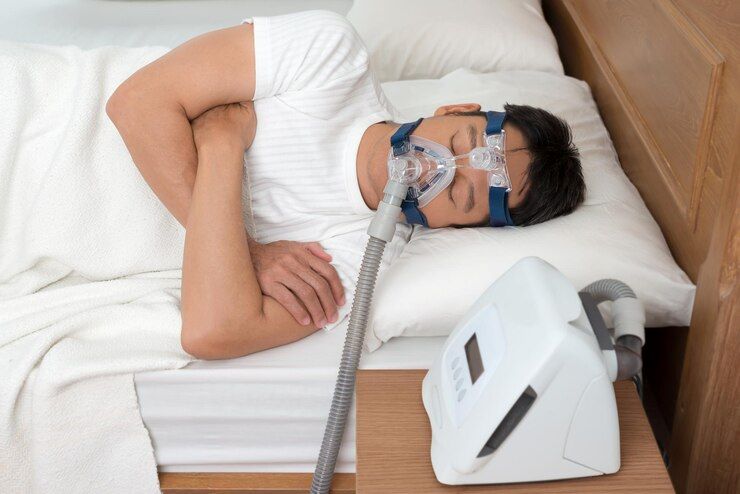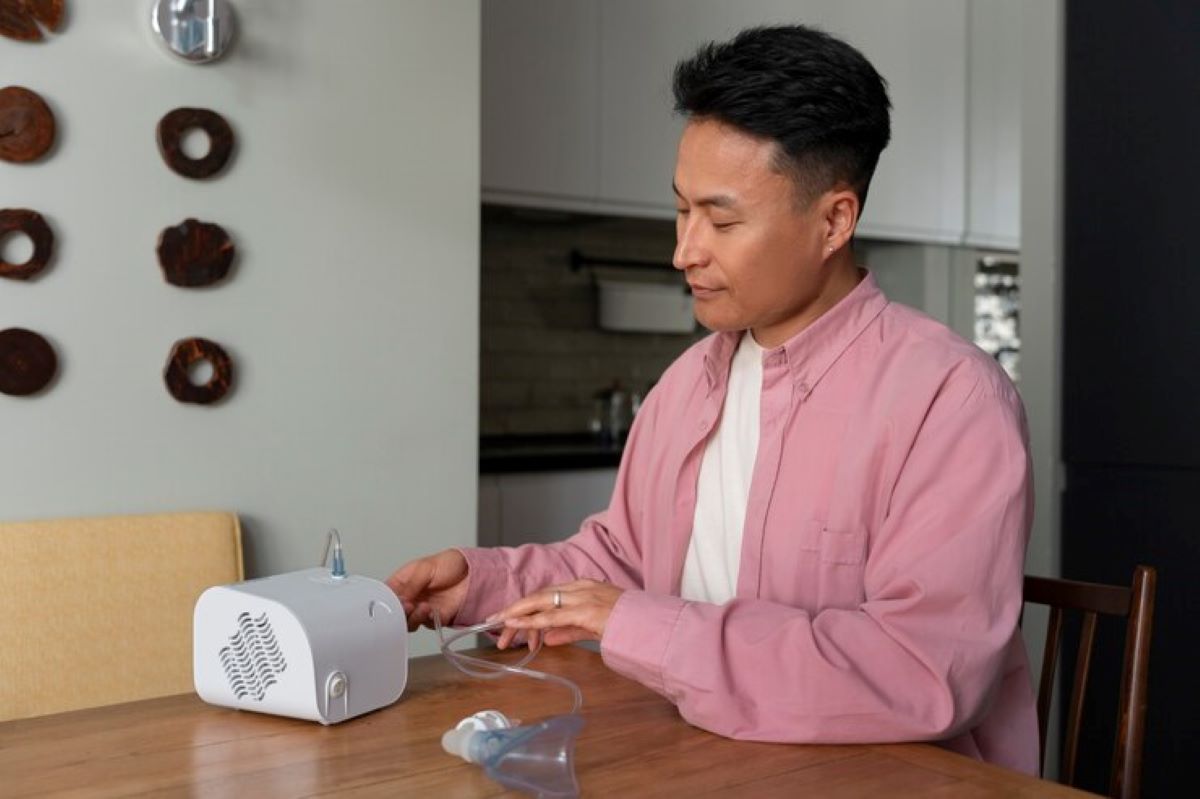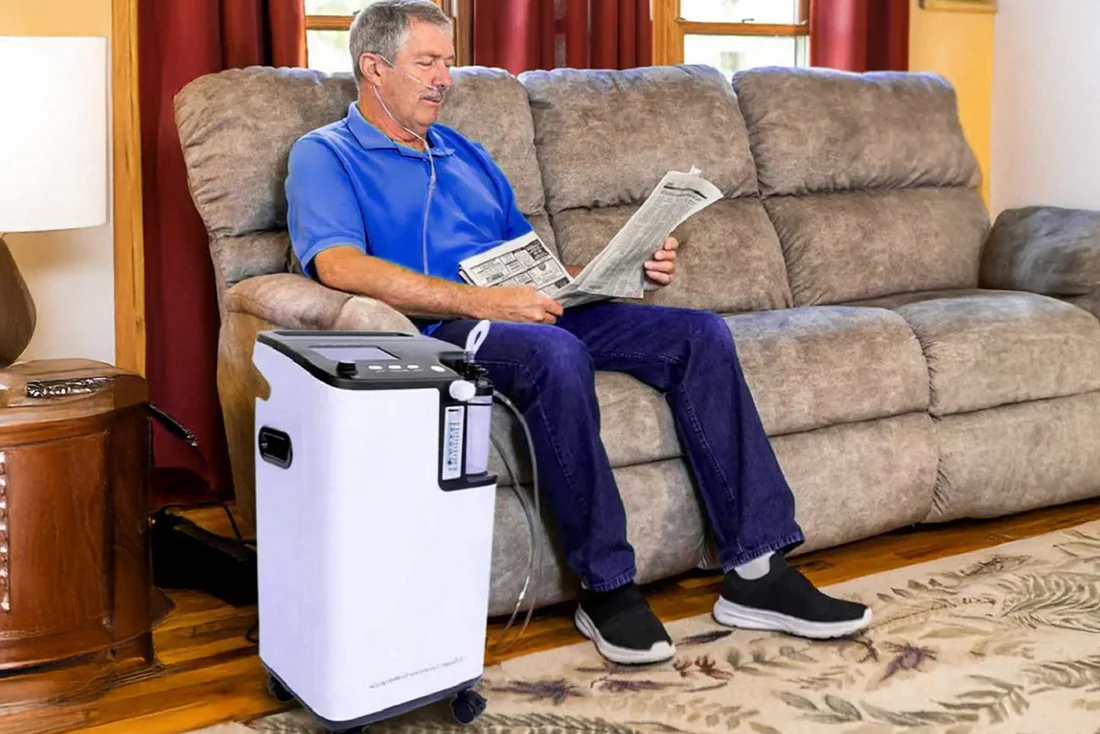The ResMed AirSense 11 AutoSet stands out as the best CPAP machine for beginners in Australia, combining user-friendly features, quiet operation, and smart technology that adapts to your breathing patterns throughout the night.
CPAP (Continuous Positive Airway Pressure) therapy delivers a steady stream of air through a mask to keep your airways open during sleep, effectively treating obstructive sleep apnoea. Choosing the right device matters significantly—a poorly matched machine can lead to discomfort, therapy abandonment, and continued health risks associated with untreated sleep apnoea.
New CPAP users face unique challenges: adjusting to sleeping with a mask, finding comfortable pressure settings, and learning device maintenance. The right beginner-friendly machine addresses these concerns through:
- Auto-adjusting pressure that responds to your needs without manual intervention
- Integrated humidification to prevent dryness and irritation
- Intuitive controls and app connectivity for easy monitoring
- Quiet operation that won’t disturb your sleep
This guide explores the best CPAP machines for beginners available through Australian providers, helping you start your sleep therapy journey with confidence.
What Types of CPAP Machines Are Suitable for Beginners?
1. Fixed-pressure CPAP machines
Fixed-pressure CPAP machines deliver a constant, predetermined airflow throughout the night, making them straightforward for new users who prefer simplicity. These devices maintain one pressure setting prescribed by your sleep specialist, eliminating complexity during the adjustment period. They work well for patients with consistent breathing patterns and stable sleep apnea severity.
2. Auto-adjusting CPAP machines (APAPs)
Auto-adjusting CPAP machines (APAPs) monitor your breathing in real-time and modify pressure levels automatically throughout the night. This adaptability addresses changing sleep positions, congestion, or varying apnea events without manual intervention. New users often find APAPs more comfortable because the machine responds to their body’s needs rather than forcing them to adapt to a fixed setting. The technology reduces instances of pressure intolerance, a common reason beginners abandon therapy.
3. Travel CPAP machines
Travel CPAP machines prioritise compact design and lightweight construction for portability. Models like the ResMed AirMini fit easily into carry-on luggage and operate quietly in hotel rooms. These devices typically include:
- Waterless humidification systems
- Smartphone app controls
- Battery compatibility options
- Reduced weight (under 500 grams)
The trade-off involves fewer advanced features compared to standard models. Travel CPAPs may lack integrated heated humidifiers, detailed data screens, or extensive pressure range capabilities. Beginners requiring comprehensive therapy monitoring might find these limitations restrictive for everyday home use, though they excel as secondary devices for occasional trips.
Which Popular CPAP Models Are Recommended for Beginners in Australia?
The ResMed AirSense 11 AutoSet stands out as the top choice for beginners in Australia. This beginner-friendly CPAP model features whisper-quiet operation at just 26 decibels, an integrated heated humidifier that prevents dryness, and smart monitoring capabilities through the myAir app. The device automatically adjusts pressure throughout the night, responding to your breathing patterns without requiring manual intervention.
The ResMed AirSense 10 Elite offers a reliable alternative for those who prefer fixed-pressure therapy. This model excels in simplicity with straightforward controls, built-in data tracking to monitor therapy progress, and proven reliability that has made it a trusted choice among Australian sleep clinics. The fixed-pressure design works well for users whose prescribed pressure remains consistent throughout the night.
The Fisher & Paykel SleepStyle+ addresses specific accessibility needs through its physical button interface. Users with vision impairment or arthritis particularly benefit from the tactile controls rather than touchscreen navigation. Key advantages include:
- ThermoSmart technology that maintains optimal humidity levels automatically
- Quiet operation comparable to premium competitors
- Simple maintenance with easy-to-clean components
- SensAwake technology that reduces pressure when you wake during the night
Budget-conscious beginners might consider the BMC Luna G3, Sefam S.Box, or Yuwell YH-450. These models provide essential CPAP functions at lower price points, though they typically feature less sophisticated pressure algorithms and fewer advanced comfort settings than premium options.
What Features Should Beginners Look For in a CPAP Machine?
Here are some key features beginners should consider when choosing a CPAP machine:
1. Pressure Ramp
Pressure ramp stands as one of the most valuable CPAP features beginners should consider. This function starts therapy at a lower pressure and gradually increases to the prescribed level over 5–45 minutes, allowing new users to fall asleep comfortably before full pressure kicks in. Without this feature, the sudden sensation of pressurised air can feel overwhelming and disrupt sleep onset.
2. Heated Humidification
Heated humidification directly addresses the most common complaint among CPAP newcomers: dry mouth and nasal passages. Built-in heated humidifiers add moisture to the airflow, preventing the uncomfortable dryness that causes many people to abandon therapy within the first few weeks. Pairing this with heated tubing eliminates condensation buildup (often called “rainout”) that can wake users with a cold, wet sensation.
3. Noise Level in CPAP Machines
Noise level in CPAP machines significantly impacts both user and partner sleep quality. Modern devices like the ResMed AirSense series operate at whisper-quiet levels below 27 decibels—comparable to rustling leaves. Budget models may produce noticeable mechanical sounds that disturb light sleepers, making this specification worth checking before purchase.
4. Data Tracking Capabilities
Data tracking capabilities help beginners understand their therapy progress. Machines with wireless connectivity upload usage data, mask leak rates, and apnoea events to smartphone apps or cloud platforms. This information proves invaluable during follow-up appointments, allowing clinicians to fine-tune settings based on actual sleep patterns rather than guesswork.
5. Ease of Cleaning
Ease of cleaning determines long-term therapy success. Machines with dishwasher-safe water chambers, simple filter access, and minimal components reduce maintenance burden. Complex designs with hard-to-reach crevices often lead to inadequate cleaning and premature equipment degradation.

How Does Support and Aftercare Impact Beginner Success with CPAP Machines?
CPAP aftercare Australia support options directly determine whether beginners persist with therapy or abandon it within the first few months. Studies show that up to 50% of new users discontinue treatment without proper guidance and ongoing support.
Australian clinics like Sove CPAP Clinic provide personalised consultations that address individual concerns before purchase. These face-to-face sessions allow beginners to:
- Test multiple mask styles to find the most comfortable fit
- Experience different machines in a controlled environment
- Receive customised pressure settings based on their prescription
- Ask questions about maintenance routines and troubleshooting
Telehealth support has become essential for beginners living in regional areas or those with mobility challenges. Remote consultations offer:
- Real-time troubleshooting for mask leaks or discomfort issues
- Data review sessions where therapists analyse sleep reports and adjust settings
- Flexible appointment times that accommodate work schedules
- Follow-up check-ins during the critical first 30 days of therapy
Many Australian providers now offer rental programs lasting 2-4 weeks, allowing beginners to trial equipment before committing to purchase. This reduces financial risk whilst building confidence with the therapy.
The combination of in-person expertise and digital convenience creates a safety net that addresses common beginner challenges like mask discomfort, pressure intolerance, and equipment confusion before they derail treatment success.
What Are the Cost Considerations When Choosing a Beginner CPAP Machine in Australia?
CPAP machines in Australia typically range from AUD 500 to over AUD 3,000, with price variations reflecting the technology and features included. Budget-friendly models like the BMC Luna G3 or Yuwell YH-450 sit at the lower end, offering basic functionality suitable for straightforward therapy needs. Mid-range devices such as the Fisher & Paykel SleepStyle+ provide enhanced comfort features and quieter operation, whilst premium options like the ResMed AirSense 11 AutoSet command higher prices due to auto-adjusting pressure algorithms, integrated heated humidifiers, and wireless connectivity.
Understanding the cost factors to consider when buying a beginner CPAP machine helps you budget effectively:
- Fixed-pressure machines generally cost less than auto-adjusting models
- Integrated humidifiers and heated tubing add AUD 200-500 to the base price
- Data tracking capabilities and app connectivity increase costs but improve therapy monitoring
- Travel-specific models may be priced higher due to compact engineering
Financial assistance options can significantly reduce out-of-pocket expenses. Medicare may provide rebates when your sleep specialist provides proper documentation, including a sleep study report and prescription. Private health insurance policies often cover a portion of CPAP equipment costs under respiratory or sleep disorder benefits, though waiting periods and annual limits apply. Many Australian clinics offer flexible payment plans or rental programmes, allowing beginners to trial therapy before committing to a full purchase.
Are There Additional Recommendations for Beginners Starting CPAP Therapy?
Voice-guided tutorials transform the initial setup experience for new users who may feel overwhelmed by technical equipment. Devices like the ResMed AirSense 11 AutoSet include step-by-step audio instructions that walk you through mask fitting, pressure adjustments, and daily maintenance routines without needing to consult a manual.
Simple physical controls matter significantly for those with vision impairment or arthritis. The Fisher & Paykel SleepStyle+ features large, tactile buttons that eliminate the frustration of navigating touchscreens in the dark or with limited dexterity.
For frequent travellers, the ResMed AirMini offers a compelling compromise:
- Weighs only 300 grams compared to standard 1.2kg machines
- Waterless humidification system eliminates spillage concerns
- Full smartphone app control for pressure adjustments
- Compatible with specific mask models only (AirFit N20, P10)
The trade-off involves reduced humidification effectiveness and limited mask compatibility. Most beginners benefit from starting with a full-sized model at home before investing in travel-specific equipment once they’ve established their therapy routine and mask preferences.

Conclusion
What is the best CPAP machine for beginners in Australia? The ResMed AirSense series stands out as the optimal choice, combining essential features with proven reliability across Australian sleep clinics.
Successful CPAP therapy depends on three critical elements working together:
- Comfort features: Auto-adjusting pressure and integrated humidification prevent common issues like dryness and pressure discomfort that cause many beginners to abandon treatment
- User-friendly design: Intuitive controls and clear displays reduce the learning curve during those crucial first weeks
- Professional support: Access to mask fitting, telehealth consultations, and ongoing adjustments through clinics like Sove CPAP Clinic dramatically improves long-term compliance
The best beginner CPAP choice Australia offers isn’t necessarily the most expensive model. Devices that balance automated comfort technology with straightforward operation create the foundation for sustainable sleep apnea management.
Ready to start your CPAP journey? Book a consultation with an Australian sleep clinic to trial machines, receive personalised mask fitting, and access the aftercare support that transforms CPAP therapy from a medical device into a life-changing sleep solution.
Related : Oxygen Therapy at Home: What Equipment Do You Really Need?
FAQs About the Best CPAP Machines for Beginners in Australia
The ResMed AirSense 11 AutoSet automatically adjusts pressure, includes built-in humidification, operates quietly, and connects to the myAir app for easy monitoring—making it perfect for first-time users.
2. What is the difference between fixed-pressure and auto-adjusting CPAP machines?
Fixed-pressure CPAP machines deliver one constant airflow, while auto-adjusting models (APAPs) modify pressure throughout the night based on your breathing patterns for added comfort.
3. Are travel CPAP machines suitable for daily home use?
Travel CPAP machines are lightweight and portable, but they often lack full humidification and advanced comfort features. They’re best used as a secondary device for trips.
4. How important is humidification in CPAP therapy?
Heated humidification prevents dryness and irritation in your airways, improving comfort and helping beginners stick with their therapy long-term.
5. Why should beginners consider noise levels before buying a CPAP machine?
Low-noise machines like the ResMed AirSense series (below 27 dB) promote restful sleep and reduce disturbance for both the user and their partner.
6. What support options help beginners succeed with CPAP therapy?
Australian clinics offer mask fitting, telehealth consultations, and rental trials. Ongoing aftercare ensures beginners stay comfortable and compliant with therapy.
7. How much do CPAP machines cost in Australia?
Beginner CPAP machines range from around AUD 500 to AUD 3,000 depending on features like auto pressure adjustment, humidifiers, and app connectivity.
8. Can Medicare or private health insurance help cover CPAP costs?
Yes. With a valid sleep study and prescription, Medicare and some private health funds may partially cover the cost of your CPAP equipment.
9. What’s the best way to start CPAP therapy as a beginner?
Book a consultation with a local Australian sleep clinic to test different masks and machines. This hands-on approach ensures you get the right fit and ongoing support for successful therapy.


